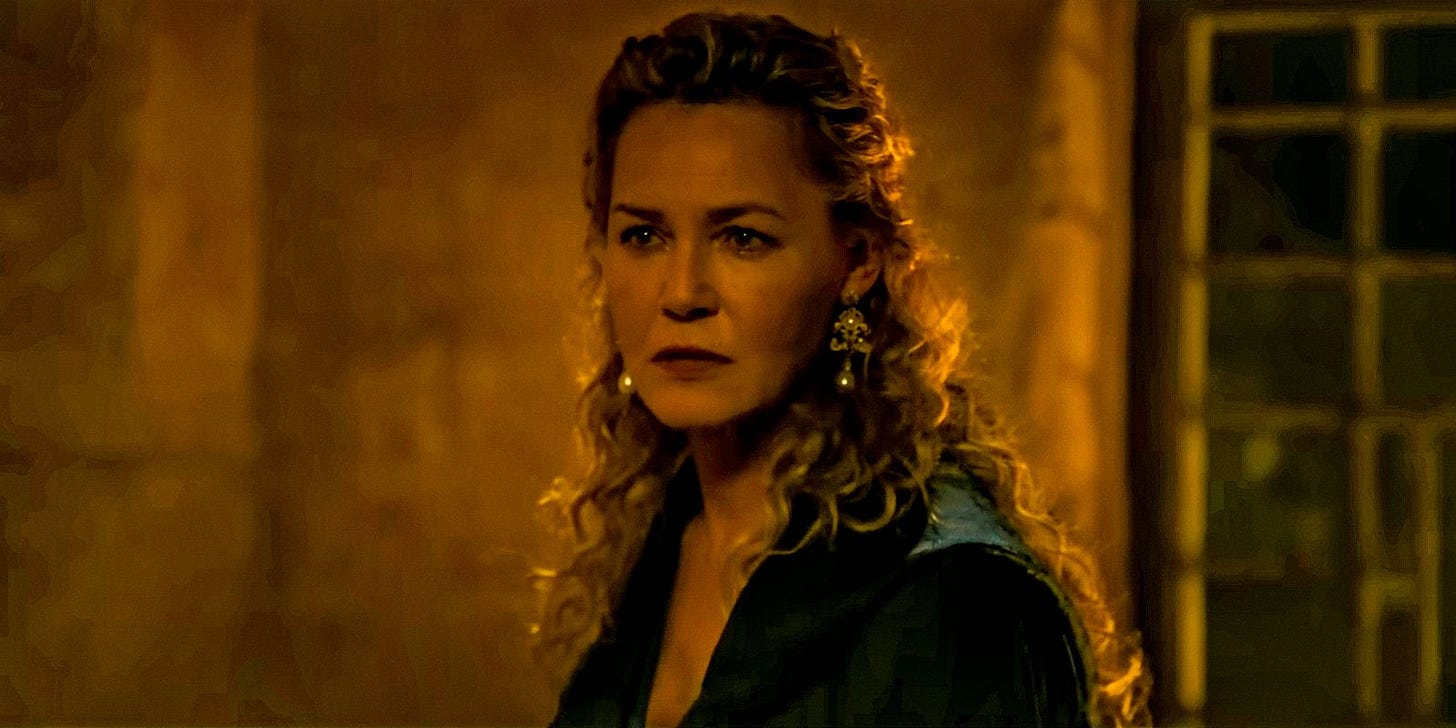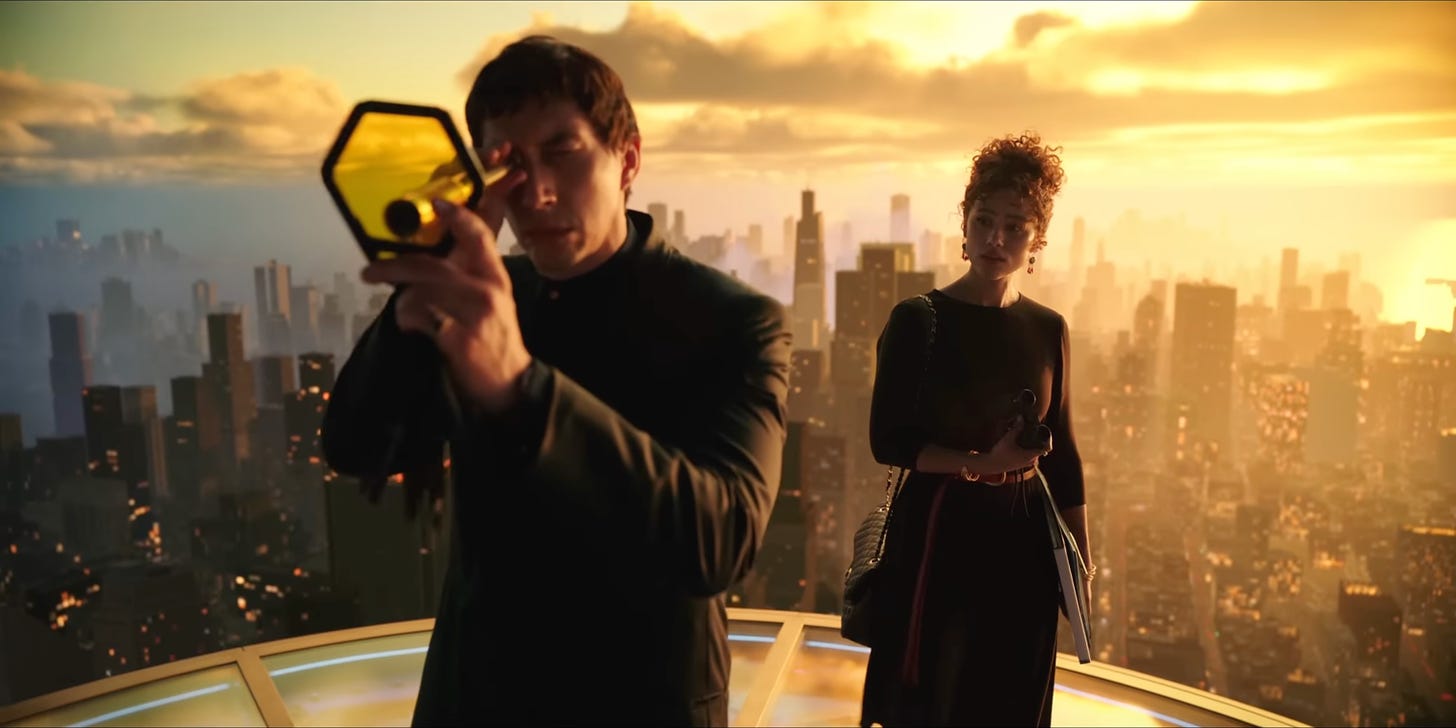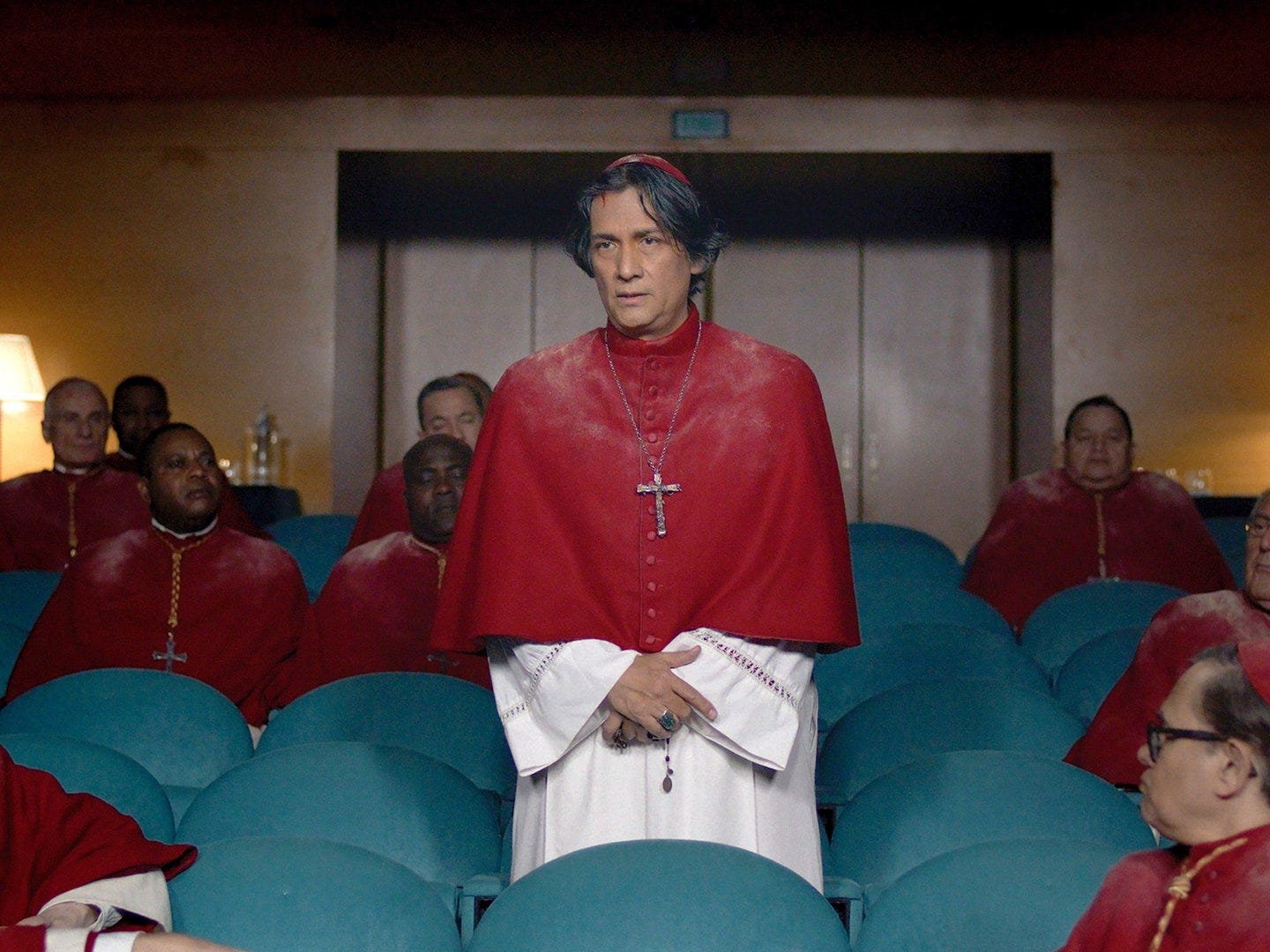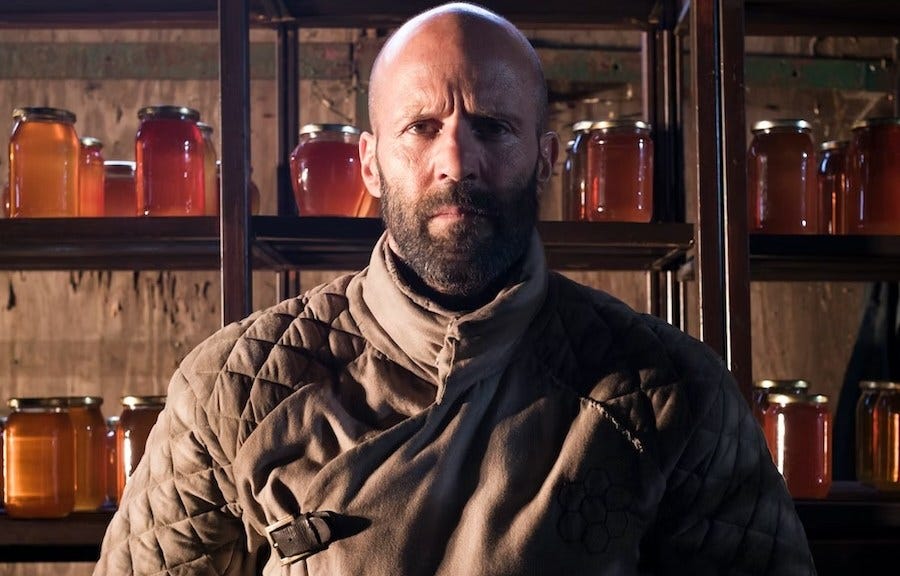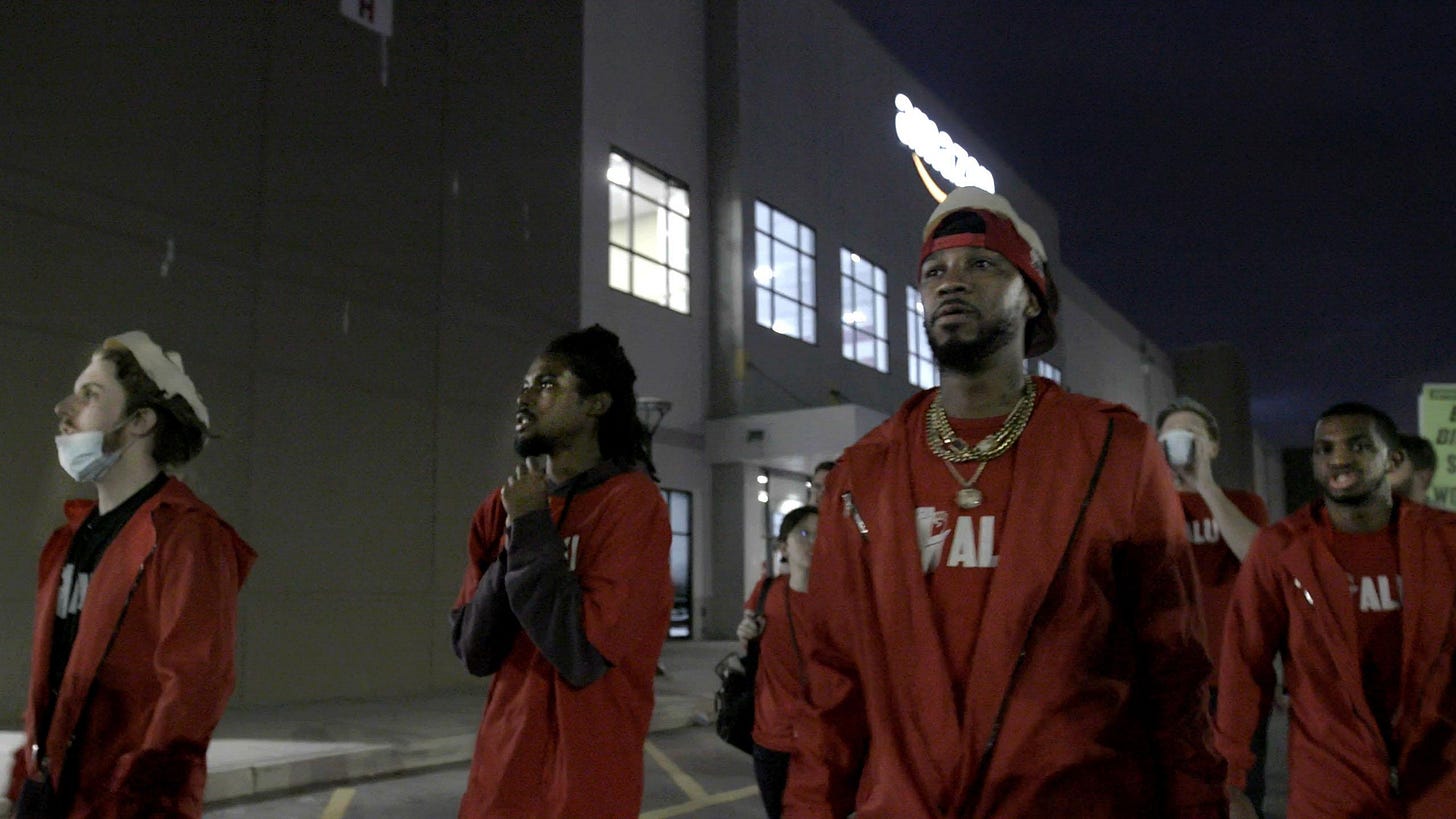America diagnoses itself
In 2024, Hollywood films suggested a variety of cures for society's social ills
As I watched dozens of films released in 2024, there was one idea that came up time and time again: there is something profoundly wrong with America. This isn’t a novel observation. I’m sure most people would agree, regardless of where they might fall on the political spectrum. However, it’s instructive to consider what these filmmakers see as the way out of this pickle.
So, what does Hollywood tell us we need to do to unfuck America?
1. RETVRN
Firstly, there were a number of films that drew parallels between America and Rome. This has been an easy comparison to make since the earliest days of the United States during which it was at the forefront of the minds of the founding fathers. If men think about the Roman Empire several times a week, then naturally we’re going to be drawn to it as a point of reference when we make political statements. To be honest, given the widespread societal problems America is faced with, I don’t think it’s unreasonable to look for analogues in another empire in decline.
Many conservatives are also looking back to the Roman Empire and reaching very different conclusions. Think of all the right-wing nerds with Roman statue profile pictures or quotes from Marcus Aurelius. Think of how “crossing the Rubicon” has become the go-to term for journalists who don’t realise that the man they lionise was the one who did the crossing. These guys bleat about a ‘RETVRN’ to some non-existent past when conservative western values were dominant.
I’m not saying that Ridley Scott is one of these guys. I think he’s probably too intellectually lazy to really think about this stuff. However, his Gladiator sequel revelled in parallels between Rome and America (cinematographer John Mathieson intentionally tried to make Rome look like Vegas). This is a film in which Rome has become corrupted by a pair of weak emperors who are able to be manipulated by Denzel Washington’s Macrinus. Macrinus wants to burn down Rome (fair enough!) but Paul Mescal’s Lucius instead resolves to restore Rome to the glory of his father and Marcus Aurelius (both from the first film).
Counterpoint: The antagonist of Kingdom of the Planet of the Apes, Proximus Caesar is a RETVRN guy. The bonobo (why are bonobos always the evil apes in this franchise?!) gains his legitimacy from his (mis)interpretation of human literature left over from prior to the rise of the apes. With William H. Macy as Proximus Caesar’s snivelling human advisor, this is a better depiction of how history is actually invoked by demagogues.
2. Deregulate
Scott wasn’t the only octagenerian who made a film in 2024 about how America is Rome. This year was also the long-awaited return to cinemas for Francis Ford Coppola whose Megalopolis was a monument to his late wife Eleanor (awww) and Great Men of History (ewww).
In ‘New Rome’, genius architect Cesar Catilina (Adam Driver) has invented a material called the Megalon with which he wants to build a futuristic city and leave a better world for future generations (what the Public Service Commission used to call ‘stewardship’). Unfortunately he is stifled at every step of the way by elites and bureaucrats who just won’t let him cook. Most unusual among these are the Trumpian figures of Crassus (Jon Voight) and Clodio (Shia LaBeouf) who are presented in such a bewildering way that it’s clear Coppola doesn’t know the first thing about Trumpianism or populism. Here, Clodio appeals to the masses of downtrodden Romans to oppose Cesar’s folly.
Coppola’s prescription for fixing America is the kind of thing that only a man as supremely out-of-touch as him could come up with. There is no real-world analogue for Cesar, he feels like a relic of a time when plutocrats like Elon Musk were still pretending to oppose fascism (to be fair, the film has been the pipeline for decades). Of course, there are plenty of so-called ‘great men’ who think they could bring us into the future if the government would get out of their way, the difference is that they stand with fascists, not against them.
Counterpoint: More than most people, I found The Apprentice to be relatively accurate in its diagnosis for Trumpism. Like Cesar, Trump pushes for deregulation so that he can build a new city on the ruins of an old one, but the film never forgets that he is dumb and venal and a product of his time. We are already living in the supposed utopia that these guys built.
3. Reform
From ancient Rome to modern Rome. Three 2024 films featured ordained members of the Catholic Church in Italy standing up against an enemy coded as tradcath (see also: The First Omen and Immaculate).
Conclave depicts the machianations between a group of cardinals gathered to elect a new pope. It focuses on the liberal Cardinal Lawrence (Ralph Fiennes) who pulls strings to sabotage conservative cardinals contending for the Papacy so that he can be kingmaker for his favoured candidate, Cardinal Bellini (Stanley Tucci). A liberal fantasy about an election with existential implications, it is understandable why Hollywood loved this film (to be fair, it’s a lot of fun!).
Spoilers for Conclave—the most astounding thing about this film is how uncynical it ends up being. The biggest reveal is that Lawrence is telling the truth when he says he doesn’t want the Papacy. He not only gets the best man elected (selfless Mexican Cardinal Benitez rather than Bellini) but single-handedly saves the church. Electoralism to the rescue!!!
Counterpoint: I loved Immaculate, the trashy horror film in which Sydney Sweeney plays a nun forced into giving birth by the Church. The best thing about it is the fact that it doesn’t pull punches or pretend you can reform your way out of a broken system.
4. Be “objective”
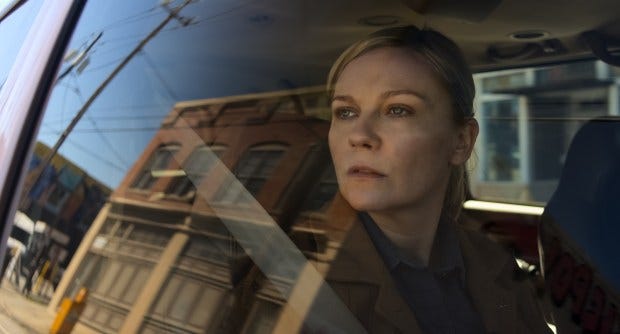
Alex Garland is the kind of guy who pretends to be above politics but turns out to be a conservative once his ideas are held up to any scrutiny. From the retrograde gender-essentialism of Men to the upcoming Iraq war propaganda Warfare, his sensible centrism always finds a way to defer to power. Garland talks about Civil War as a film critical of both ends of the political spectrum (“West Coast forces, Portland Maoists— it's all the same”) while taking his cues from right-wing figures like Andy Ngo and Helen Lewis. Like Coppola, Garland uses a Trumpian figure as an antagonist while espousing a more polite conservatism.
The photojournalists at the centre are treated as representatives of a sacred vocation dedicated to heroic truth-telling like non-violent versions of assassins in the John Wick universe (you better believe he gets a lot of mileage out of the double-meaning of ‘shoot’). When Kirsten Dunst’s character talks about her function as a detatched observer in documenting the war, you can tell that Garland conceives of his own role in similar terms.
In my opinion, 'journalistic objectivity' is a conservative myth and Garland is a conservative mythmaker.
Counterpoint: Most media outlets were little more than stenographers for the powerful in 2024. However, documentarians who dispense with childish ideas like ‘objectivity’ often end up making powerful work. It has been an important year for political documentaries, especially about the occupation and genocide of Palestine by Israelis. Check out No Other Land, The Last Sky, Where the Olive Trees Weep or Al Jazeera’s documentaries about the Gaza genocide The Night Won’t End and One Year in Gaza: Nowhere Safe. There still are ‘brave truthtellers’ out there, they’re just not the ones that Garland fetishises.
5. “Kill the Queen”
For a silly action film, The Beekeeper implicitly understands something that most people intuitively know: social murder is still murder. When Jason Statham “protects the hive” by wrecking righteous violence on an organisation responsible for scamming the elderly out of their life savings, the audience gets it. They don’t say “sure, the elder-abuse industry is imperfect but those people were doing their best to incrementally improve it from within.” Critics have described the way this film’s politics don’t neatly fit into America’s bipartisan boxes; the Presidential administration behind the conspiracy draws from both Democrat and Republican figures. The same can be seen in how recent acts of retaliation against social murder have enjoyed widespread support from across the political spectrum.
Parallels can be seen with Rebel Ridge in which righteous protagonist Terry seeks retribution against a town enriching itself via civil asset forfeiture. This film also makes tangible the violence of ‘white collar’ crime.
Spoilers for The Beekeeper and Rebel Ridge—In The Beekeeper Jason Statham initially resolves to “kill the Queen” (aka the President) for producing “defective offspring” (aka her shithead son who is most responsible for the conspiracy). The President is depicted as decent and remorseful and Statham calls it a day after doming her failson. In Rebel Ridge, Terry is content with exposing the conspiracy and stops short of violence. I’m not sure why these films pulled their punches. Maybe they were afraid of being seen as too radical or were just setting themselves up for sequels.
Counterpoint: The fact that films like The Beekeeper and Rebel Ridge treat corruption as an anomaly borne out of a single bad apple suggests they actually have a reasonable amount of faith in institutions. The same cannot be said for Furiosa. A decent prequel to Mad Max: Fury Road, it features a character named the History Man who lays out the film’s ideas about cycles of violence and revenge in a monologue (“there will always be war”). Even if Furiosa is able to “kill the queen”, we already know a new tyrant will take power over the lawless wasteland in the next film.
6. Build Connections
Finally, if you can’t fix the system, you can at least look after each other within it. Solidarity is the way to build power in the excellent documentary Union. Similarly, the heart of Anora lies in a sex worker and a hired goon realising their interests are more aligned with one another than either is with the wealthy and powerful. Outside America, building connections between groups is depicted as an important act of resistance against Hindutva in Monkey Man and All We Imagine As Light.
I don’t think any of these films necessarily treat human connection as the be-all and end-all of unfucking the world but they are still a vital first step.
Not mentioned: Burn it down
Few of these films question the existence of the system itself, they simply propose ways to get it back on track. Let me know if there is a significant film I have forgotten or haven’t seen but there doesn’t seem to be anything as conclusive as 2013’s Snowpiercer in which Bong Joon-Ho concludes that a society built on the emiseration of children is completely illegitimate.
There are films outside Hollywood that imagine a better future. I am partial to Ena Sendijarević’s Sweet Dreams which casts doubt on the prospect of “using the master’s tools to destroy his house.”
Given Hollywood is part of the same system of exploitation and cruelty, it’s only natural that it wouldn’t argue for its own euthanasia.
I hope all my readers have a wonderful festive season and are able to rest after an exhausting year. This will be my last piece for the year but I hope to return in January by counting down my favourite films of 2024 (with some politics thrown in for good measure).




